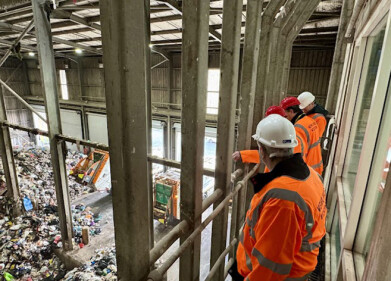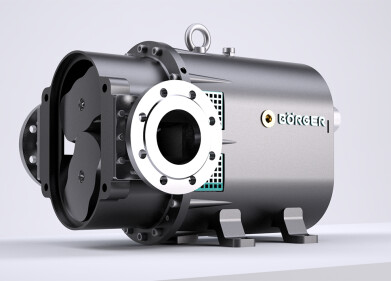Waste to energy
Harnessing Solar Energy for Waste Management
Jan 23 2023
Waste management is a critical issue facing our society today. The traditional methods of waste disposal, such as landfills and incineration, have a significant environmental impact and are becoming increasingly unsustainable. At the same time, the world's population and consumption patterns are continuing to grow, leading to an ever-increasing amount of waste.
Harnessing solar energy can provide a sustainable solution to this problem by providing a clean and renewable source of energy to power waste management systems. In this blog post, we will explore how solar energy can be used to transform the waste management industry, reducing its environmental impact and providing a more sustainable future.
Waste Management and Its Environmental Impact
The traditional methods of waste disposal, such as landfills and incineration, have a significant environmental impact. Landfills take up valuable land space and can contaminate groundwater and surface water. Incineration releases greenhouse gases and pollutants into the air. Additionally, these methods do not effectively address the issue of resource recovery and recycling, which is crucial for a sustainable waste management system.
The current waste management systems are also facing challenges such as increasing amounts of waste generated, lack of space for landfills, and stricter regulations on emissions from waste treatment facilities. As a result, there is a growing need for sustainable waste management solutions that not only address the environmental impacts of waste disposal but also provide a long-term, economically viable solution. Harnessing solar energy can provide such a solution by providing a clean and renewable source of energy to power waste management systems.
The Potential of Solar Energy to Transform Waste Disposal
Solar energy can be harnessed to power a wide range of waste management systems, including waste-to-energy (WTE) plants, composting facilities, and recycling centers. WTE plants use the heat generated by burning waste to produce electricity, while composting facilities use solar-powered equipment to accelerate the decomposition of organic waste. Solar energy can also be used to power the machinery and equipment used in recycling centers.
Solar waste management solutions have several advantages over traditional methods. They can be more energy-efficient and have lower greenhouse gas emissions. Additionally, they can be more cost-effective in the long-term, with the cost of solar energy continuing to decrease. Furthermore, they can be implemented in remote and off-grid areas, providing waste management services to communities that would otherwise lack access to these facilities.
Solar energy offers a sustainable and economically viable solution for waste management. It can be used to power a wide range of waste management systems, providing a cleaner and more efficient alternative to traditional methods.
The Benefits of Solar-Powered Waste Management
Using solar energy to power waste management systems has several benefits. One of the main benefits is cost savings. Solar energy is a clean and renewable energy source, so it does not require the ongoing expenses associated with fossil fuels. Additionally, the cost of solar technology continues to decrease, making it more accessible and cost-effective.
Another benefit of solar-powered waste management is the reduction of greenhouse gas emissions. Traditional waste management methods, such as landfills and incineration, can release significant amounts of greenhouse gases into the atmosphere. In contrast, solar-powered waste management systems do not produce emissions, making them a more environmentally friendly option.
Solar-powered waste management also improves energy efficiency. Incineration and other traditional waste management methods can only recover a small fraction of the energy contained in waste, while solar-powered waste management systems can recover a greater percentage of energy, reducing the need for fossil fuels.
The Challenges of Solar Waste Management
While solar-powered waste management has many benefits, there are also challenges that must be addressed. One of the main challenges is the initial cost of installation. Solar waste management systems can be expensive to set up, and the cost may be prohibitive for some communities or organizations.
Another challenge is the need for government incentives and regulations to support the development and implementation of solar waste management systems. Without government support, it may be difficult to encourage widespread adoption of this technology. In Texas, EcoWatch says there are a number of incentives available for solar energy projects, such as the Texas Renewable Energy Credit program and property tax exemptions for solar energy systems, which may help to offset the initial cost of installation and encourage the adoption of solar waste management systems.
Additionally, the lack of knowledge and expertise in solar waste management among waste management companies and municipalities can also be a challenge, making it harder for them to implement and maintain solar-powered systems.
Solar-powered waste management does have the potential to revolutionize the waste management industry, but there are also challenges that must be addressed, including initial cost of installation, the need for government support, and lack of knowledge and expertise.
Conclusion
Solar energy has the potential to revolutionize the waste management industry by providing a sustainable and economically viable solution. It can be used to power a wide range of waste management systems, providing a cleaner and more efficient alternative to traditional methods.
The benefits of solar-powered waste management include cost savings, reduced greenhouse gas emissions, and improved energy efficiency. However, there are also challenges that must be addressed, including the initial cost of installation, the need for government support and the lack of knowledge and expertise in solar waste management.
Further research and investment in solar waste management technology is needed to fully realize its potential and to address these challenges. It's important to keep in mind that, with the population growing and the waste generated increasing, sustainable solutions are needed now more than ever.
Events
May 11 2025 Vienna, Austria
May 18 2025 Algiers, Algeria
23rd International Water Management Exhibition
May 20 2025 Prague, Czech Republic
Singapore International Water Week Spotlight 2025
Jun 23 2025 Singapore
Jun 25 2025 Sao Paulo, Brasil

















